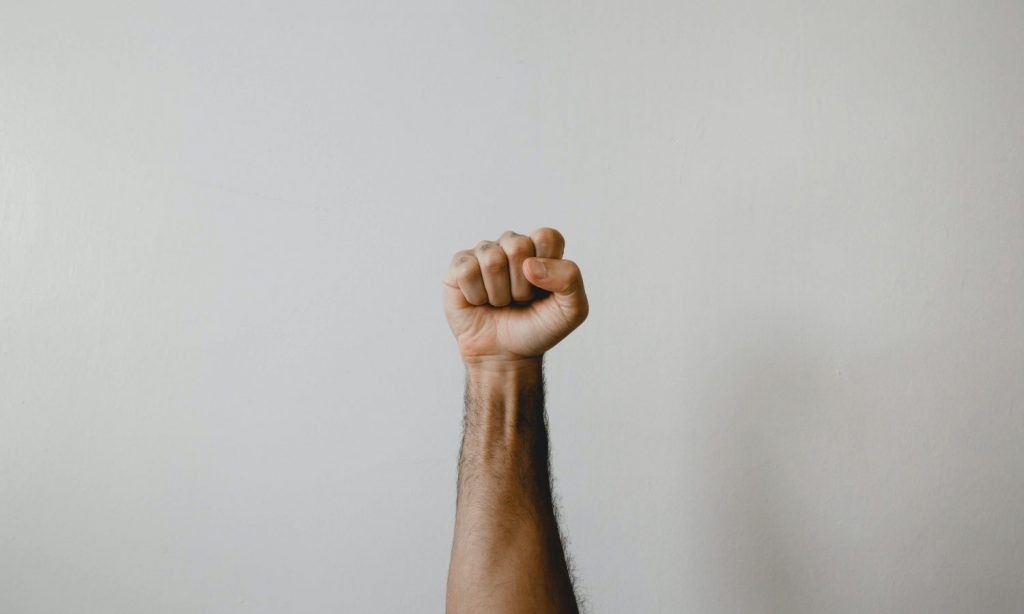The means of commercially producing, selling, and profiting from cannabis are, so far, incredibly concentrated in the hands of white business owners.
By Steven Palmer (a.k.a. Hazey Taughtme).
Introduction to social equity
There is a lot of talk, but what is being done about cannabis social equity. Let’s get one thing straight — the world needs marijuana. Even as far back as 485 BC (just about 1,500 years ago), Greek historian Herodotus described the pot- smoking rituals of ancient Scythians.
In China, archaeologists uncovered evidence of cannabis use dating back 2,500 years. When considered in this light, cannabis is a human right — and a sacred one at that.
What does all of this have to do with social equity in the cannabis industry here and now?
Today, cannabis is a commercial product grown and sold for profit. After years of prohibition, prosecution, and lurking in the shadows, the cannabis industry is finally stepping out into the light under lawful retail regulations set forward by several states.
However, the means of commercially producing, selling, and profiting from cannabis are, so far, incredibly concentrated in the hands of white business owners. Recent figures put white ownership at a staggering 99% industry-wide.
Cannabis cultivation has an ancient legacy going beyond race, color, or creed. Despite that, in America’s burgeoning multi-billion dollar cannabis economy, your likelihood of involvement, ownership, and success depends on your skin color.
Without social equity in the cannabis industry, people of color will continue being shut out of an exciting economic opportunity that has, in large part, been built with their hands.
What does social equity look like in practice? Who qualifies for social equity, and who doesn’t? These are essential questions — and we’re going to tackle them.
Below, you’ll also find a guide to social equity programs in legal cannabis states like California, Illinois, and Michigan.
Why the cannabis industry needs social equity programs
Throughout the war on drugs era, the heavy-handed enforcement of marijuana prohibition resulted in the lopsided criminalization of people of color.
Despite a near equal propensity between whites and people of color for possessing marijuana, police have historically targeted Black and Latino communities when doling out criminal repercussions.
Since white folks have traditionally received a pass from police, prosecutors, and judges, their records remain largely clean. On the other hand, people of color are disproportionately arrested and charged for the same crimes in extraordinarily high numbers.
When speaking of social equity, what’s at stake isn’t only who does and doesn’t have a clean enough record to participate in the legal cannabis industry. The impacts of racial profiling, disproportionate imprisonment, and institutional racism are also felt economically.
Here in 2020, rich white men are again on the cusp of complete monopolization of yet another lucrative industry. Social equity programs are the best chance for people of color to slow down the cannabis industry’s monopolization — and give a greater diversity of interests a seat at the table.
Are social equity programs working?
State legalization of cannabis is a relatively recent thing. California kicked off the movement back in 1996 by becoming the first medical marijuana state, but in 2012 Colorado went the whole nine yards by legalizing recreational cannabis.
The other eight states, along with Washington DC, all followed suit between 2012 and 2016. So, concluding whether the nascent social equity programs in those states are working or not is a big ask.
RELATED: How The Cannabis Industry Can Help Expunged Individuals Enter The Legal Market
In states like California, Michigan, and Illinois, where racial diversity is high, progressive efforts are being made to enforce social equity programs statewide. For instance, Illinois has rolled an expungement initiative into its cannabis business licensing procedures, but it’s simply too soon to measure the material effects the programs are having.
As an aside, the continuation of racially-motivated policing means that even with social equity programs in place, their effects are hampered without police reform.
Challenges for social equity programs
Standing in the way of designing, implementing, and garnering participation in social equity programs are a few major challenges.
- Racial assumptions about black business owners. As reporter Amanda Lewis puts it, “black people who sell pot are dangerous criminals and white people who do the same are goofy hippies.”
- Racial inequality is already rooted in the cannabis industry. With white ownership of cannabis businesses already high (99%), social equity program recipients face a steep entry barrier.
- Social equity programs are unproven. Owing to their very recent implementation and lack of statewide cohesion, social equity program effectiveness is an unknown quantity.
- Skepticism on behalf of people of color. After years of systemic racism that continues to this day, participation turnout for social equity programs might be low as Black, Latino, and other marginalized groups harbor deep skepticism toward the state.
Solutions for creating social equity programs
As states continue to legalize cannabis, they’re increasingly faced with fairly implementing legalization. However, lawmakers need to be held accountable for doing so, which requires people of color to make their voices heard.
Outreach to Black and Latino communities. As the two communities most deeply affected by the dark legacy of the war on drugs, reaching out to Black and Latino communities about social equity programs can be a game- changer.
RELATED: Criminal Justice Reform Must Become The Business Of America’s Business
Supporting police reform. Social equity programs alone don’t do enough to end the paradigm of disproportionate policing and racial profiling in Black and Latino neighborhoods. Police reform, criminal record expungement, and social equity programs go hand in hand.
Community support for increased SE programs. Communities need to rally around and signal support for increased resources toward social equity programs. Writing to lawmakers and voting in candidates who support legalization and greater industry access for non-white participants is a must.
Supporting Black businesses. Regardless of whether or not a Black-owned cannabis business relied on social equity to get established, they should be financially supported by their communities.

Social equity programs in legal states
California
In 2018, the state of California approved bill SB 1294, otherwise known as the Cannabis Equity Act. While the act was regarded in some corners as a big step
forward toward achieving greater Black cannabis business ownership in the state, it effectively put the onus of responsibility at the city level.
California cities must create local social equity program models, then apply to the state for the funding allocated by SB 1294. In effect, if a California city doesn’t have the resources, knowledge, or desire to pursue a social equity program for its constituents, then it either won’t do it, or will create a poorly designed and ineffective program as Los Angeles recently did.
Oregon
With a low barrier to entry that includes the nation’s lowest cannabis business licensing fees and no business permit issuance limits, Oregon is at the top of the heap when it comes to social equity.
Unlike other states with overly restrictive and competitive social equity programs, Oregon is fostering a small-business friendly climate with a focus on minority ownership. However, despite the progress being made in major cities like Portland, racial profiling in Oregon is still an ongoing and, in some cases, intensifying problem that adds to the social equity problem.
Washington
On October 26th, 2020, Washington’s Social Equity in Cannabis Task Force is set to have a historic meeting with the goal of creating recommendations to the governor. The process of creating recommendations is meant to guide the state’s social equity guidelines going forward pursuant to the passage of bill HB 2870.
Despite the good intentions, the SECTF can only make recommendations but has no power beyond that. Aside from the lack of power, there are early allegations that the SECTF will make regulations favoring a limited number of participants and insiders.
Colorado
Colorado passed SB 224 which, amongst other regulations, imposed a requirement for the state to begin issuing micro business licenses designed to give people in “low-income areas” a shot at getting a cannabis biz license. Apparently, in Colorado, “low-income” means Black, Latino, or indigenous, since
there is scant language in the bill referring to race or the war on drugs, but plenty about people who don’t have or make money.
The bill offers help getting a $10,000 cannabis business license, but the assistance stops there. As several have pointed out since the enactment of SB 224, the business license is the least costly aspect of getting a cannabis business off the ground, so whether the assistance can amount to tangible help is questionable.
Nevada
In 2017, Nevada passed AB 422, an after-thought bill without real goals, targets, or commitments but packaged to resemble something like a social equity program.
However, Nevada’s prohibitively expensive $250K cannabis business license and restrictive issuance mean that today, the state has a grand total of one Black-owned retail business. There are efforts underway to distribute more money to war on drug victims, such as the Cannabis Equity and Inclusion Community, who are trying to change that.
Michigan
Considering the failings of states like Colorado and Nevada, Michigan has started with a robust social equity initiative that looks like a step in the right direction.
Currently, social equity program applicants can get cannabis startup fees reduced by up to 75% when taking factors like community, marijuana arrest record, and caregiver status into account.
However, as is the case elsewhere, receiving a grant to pay for startup fees is only a fraction of the total assistance needed to get a cannabis business off the ground. Some business models requires hundreds of thousands if not millions of dollars to launch, but the state doesn’t have provisions for aid beyond business licensing.
Illinois
Today, Illinois is far and away providing the best social equity program framework in the nation. Under current guidelines, applicants are eligible for increased assistance based on a variety of factors such as one’s community
resources, how much the applicant was affected by marijuana policing, and if the applicant will employ a majority of their workforce from war on drugs-affected areas.
All in all, the program is progressive where others are not, and is assisted by the state’s cannabis tax provision which sends 25% of revenue grants designed to improve economic development in hard hit areas. Those who qualify for social equity programs can also submit applications for cannabis-business loans — a major breakthrough for diversifying business ownership.
Other states
Maine, a nearly 95% white state, did not include social equity provisions in its recreational cannabis bill, and still lags far behind the rest of the nation in doing so.
Vermont hasn’t formally begun recreational cannabis sales yet, but it doesn’t look like the incoming bill will significantly address social equity.
Massachusetts may be small, but it’s looking to make a large impact on the country’s social equity programs. The state has set aside cannabis delivery business licenses exclusively for minority businesses, though it still does not have a model in place for great access to capital.
Washington DC has provisions in place for funneling cannabis sales tax back into the communities hardest hit by the war on drugs. The bill also expunges marijuana offenses, allows anyone with a misdemeanor to work in the cannabis industry, and requires 60% of owners, employees, and applicants to be DC residents.


